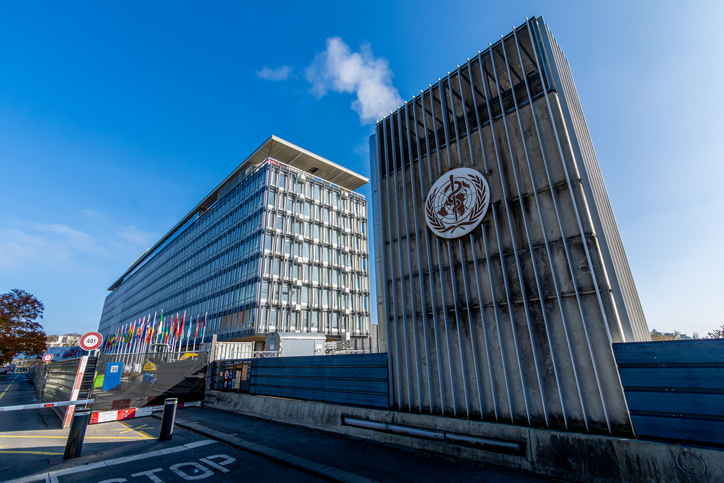A bill currently before Congress would restore federal and state civil remedy protections for those harmed by vaccines and other products in a Presidentially-declared emergency, such as the COVID-19 pandemic.
The PREP Repeal Act (H.R. 4388), introduced on July 15 by U.S. Reps. Thomas Massie (R-KY), and Paul Gosar (R-AZ), would end blanket immunity for pandemic response measures and reinstate lawsuit rights for those injured by drugs, biologics, or PREP Act-covered products. The Act would apply to current lawsuits and appeals and cancel unspent federal funds allocated for injury compensation.
The bill includes a severability clause that would allow contested aspects of the bill to be removed without voiding it in its entirety.
In a press release, Massie called the PREP Act a declaration of “medical malpractice martial law.”
“Americans deserve the right to seek justice when injured by government-mandated products,” said Massie said. “The PREP Repeal Act will restore that right.”
Not ‘Recipe for Trust’
Lawmakers have offered several bills over the years to repeal the Public Readiness and Emergency Preparedness (PREP) Act. Passed in 2005, the law enhanced controls under the Public Health Service (PHS) Act and provided protections for health product manufacturers, most notably vaccine developers, during a pandemic or a similarly declared public health crisis.
The sweeping wording of the PREP Act authorizes the Secretary of Health and Human Services to provide immunity “related to the manufacture, testing, development, distribution, administration, and use of medical countermeasures.”
Nothing about PREP makes sense, says Jeff Childress, an attorney involved in Moms for America v. HHS, a lawsuit currently challenging the constitutionality of the PREP Act.
“If a product is ‘safe and effective,’ then why does a manufacturer even need liability immunity? And if it’s not ‘safe and effective,’ what right does the government have to mandate it in a free society? It’s not exactly a recipe for trust,” Childress wrote in a blog post on his Coffee and Covid substack.
Compensation Takeover
To compensate people who suffered vaccine injury, disability, or death from health products used under a declared emergency, the U.S. government established, in 2005 as part of the PREP Act, the Countermeasures Injury Compensation Program (CICP).
The program is a “useless and hyper-stingy black box,” wrote Childress.
The origins of the CICP are troubling, says Peter McCullough, a cardiologist, chief scientific officer at The Wellness Company, and internationally recognized critic of vaccines.
“As far as I can recall, when the PREP Act was passed in 2005, it wasn’t messaged to the medical community at all,” said McCullough. “It was a governmental consideration for biological terrorism as acts of war. The Prep Act was more about protecting military research than patients in clinical care.”
The scope of the lawsuit immunity has expanded drastically, says McCullough.
“Sadly, with the COVID-19 pandemic, the PREP Act is providing blanket immunity for vaccine companies,” said McCullough.
Safety Doubts
Legitimate questions about vaccine safety have emerged over the past 40 to 50 years, says Rep. Chip Roy (R-TX).
“What I don’t like is when you have these kinds of blanket protections that take away the incentives that I think are necessary to assure the safety in products when you get hysteria and emotion,” said Roy in an interview with Health Care News in May. “Liability should be on the table.”
On March 5, 2024, Roy introduced the LIABLE Act, which would hold COVID-19 vaccine makers liable for injuries caused by their products. Roy has not reintroduced the bill in the current session.
Personal Stories
The day Massie introduced the PREP Repeal Act, Sen. Ron Johnson (R-WI) held a Senate hearing for Americans who have experienced personal injury or the death of a loved one through adverse effects of vaccines. Witnesses shared devastating stories of injury or death from vaccines and diseases that vaccines are intended to prevent.
“The faith in vaccines and vaccination policy is protected with religious-like zeal, and those questioning them are viewed as dangerous apostates, more than deserving of the scorn, vilification, and retribution heaped upon them,” said Johnson in his opening statement.
Johnson called for an “open-minded review” of vaccines and their history.
Johnson shared an estimate that drug companies spent $10 billion on advertisements to consumers in 2024.
“That amount of spending has paid off handsomely for Big Pharma and its ability to control the narrative and suppress stories of drug and vaccine injuries,” said Johnson.
‘Flood’ of Lawsuits
Individuals have challenged immunity under the PREP Act in several states in recent years, with mixed results.
In March of this year, a North Carolina Supreme Court judge overturned a lower court’s rejection of a lawsuit filed by a mother and son for violations of their state constitutional rights. Tanner Smith, a minor, was forced to receive a COVID-19 vaccine at his school’s health clinic without consent. The clinic claimed immunity under the PREP Act. Chief Justice Paul Newby, who wrote the majority opinion, disagreed.
Similar cases were filed in Maine and Vermont, affirming liability protection under the PREP Act.
Gross Negligence Allowed
Unlike other products, these vaccines are uniquely privileged, with the ability to “foist the cost of harm onto consumers or government even if manufacturers are grossly negligent and conceal reports of harm, said Jane Orient, M.D., executive director of the Association of American Physicians and Surgeons.
Although companies should receive protection from frivolous lawsuits, PREP repeal would give people their rightful day in court, says Orient.
“There have been so many reports of grievous harm that a flood of lawsuits could be anticipated,” said Orient. “Litigation is a huge barrier to innovation. Tort reform is needed to protect against outrageous lawsuits and awards, but courts are needed to protect people against fraud and products known to be defective and harmful.”
Ashley Bateman ([email protected]) writes from Virginia.



